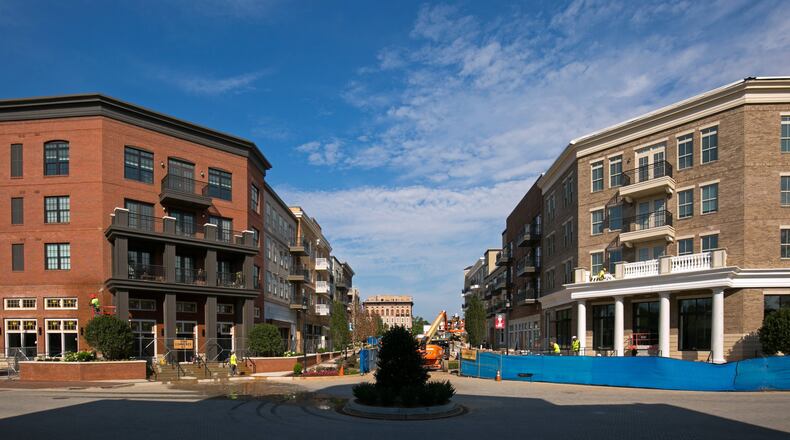Alpharetta is developing a plan that includes building workforce housing that young professionals can afford, and strategies to sharpen their competitive edge in attracting more businesses to the city.
The two concepts go hand-in-hand for the North Fulton community. Alpharetta doubles its population during the day to 127,000 people due to corporations that employ thousands of staff there. Affordable housing is a factor for companies interested in relocating to Alpharetta. Especially if they have young employees who are not yet interested in buying a home.
“Millennials have very good paying jobs but some are carrying a load of student debt,” said James Drinkard, assistant city administrator. “They can’t necessarily afford a $500,000 home. We have a need to address housing.”
READ MORE: Mayor: Alpharetta-based corporations make the city a major player
The city has hired RKG Associates consulting firm to produce a new economic development plan that will help identify what Alpharetta does well and not so well. Alpharetta officials said the city will have a plan to build on its success within six to nine months.
Councilmembers said they want to take Alpharetta to the next level by understanding what works in other cities, such as Greenville. S.C., Birmingham, Ala. and Franklin, Tenn.
“We will assess the market and assets, competitiveness in Fulton (County), metro Atlanta and the Southeast region,” said RKG principal Kyle Talente, during the City Council meeting held on Feb. 17.
Over the last seven years, Alpharetta has opened the popular mixed-use development Avalon (2014) and downtown’s City Center (2018). And the city’s evolution is continuing, said James Drinkard, assistant city administrator. The first section of The Alpha Loop multi-use trails connecting Avalon, Alpharetta City Center, Northwinds Summit and neighborhoods along the way, is set to open in April.
“A community is always growing and shifting,” said Drinkard. “If you are not constantly working to address it, bad things can happen and things will deteriorate. For some communities, it’s about creating success; for us it’s about sustaining it.”
In addition to millennials, RFG and city staff will consider the needs of public safety workers and teachers. U.S. Census data shows the median age among Alpharetta residents was 38 in 2018, with a median household income of $98,489. In 2017, the median property value was $364,900, according to Data USA.
Alpharetta’s 2019 study of apartment rentals revealed an average cost of $1,508 per unit across all inventory. The city has 21 apartment complexes with a total of 6,659 units.
“[RKG] is going to identify what the need is; how many units we need and the price point,” said Drinkard. “We must start defining for Alpharetta different jobs and the wage rates, and we have to tailor workforce housing to that.”
RKG was awarded the project in December. The total cost of the Economic Development Strategic Plan is $81,390. The Alpharetta Development Authority contributed $37,500 to that amount.
RKG intends to hold three public input sessions for the plan in the coming months. “The purpose is to build a consensus,” said Talente, pointing out that generally only one percent of residents stay plugged into economic development and public policy; and 94 percent choose not to pay attention to it.
“You can bet that the 5 percent (of people opposed to any kind of change) is out there telling their (side of the) story,” he added. “But, the more we can make the community aware, the more successful we are going to be.”
About the Author
Keep Reading
The Latest
Featured

